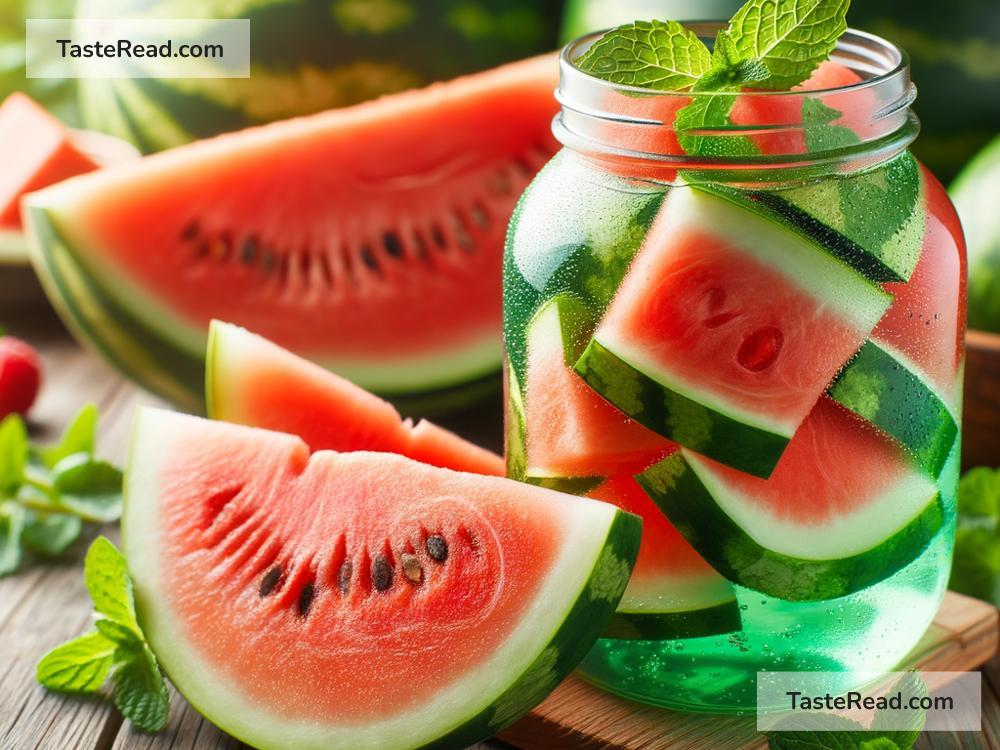Watermelon Rind: A Natural Diuretic to Reduce Water Retention
Watermelon is one of summer’s favorite fruits. Sweet, juicy, and refreshing, it’s the perfect treat to beat the heat. But did you know that the often-discarded rind—the white part of the watermelon found between the bright red flesh and the green skin—has some remarkable health benefits? In particular, watermelon rind is a natural diuretic that can help reduce water retention in your body. It’s a surprising secret of this humble fruit that deserves more attention.
What Is Water Retention?
First, let’s understand what water retention is. Water retention, or edema, is when excess fluid builds up in your body. This can occur for various reasons, including dehydration, high salt intake, hormonal changes, or certain health conditions. The swelling often shows up in areas like your hands, feet, legs, or abdomen, making you feel bloated or puffy. While occasional water retention is common, persistent swelling can be uncomfortable and sometimes signal underlying health concerns.
What Are Diuretics?
Diuretics are substances that help your body get rid of excess water and salt through urination. They promote kidney activity, resulting in a natural flushing of fluids. Doctors often prescribe diuretics for medical reasons, like managing high blood pressure or treating edema. However, nature also offers plenty of natural diuretics, and watermelon rind is one of them.
Why Watermelon Rind?
While most people enjoy the red, sweet flesh of watermelon, the white rind is packed with nutrients. It contains compounds like citrulline and potassium that contribute to its diuretic properties. Citrulline is an amino acid that helps improve circulation, relax blood vessels, and support kidney function, which is crucial for eliminating excess fluids. Potassium, on the other hand, helps balance sodium levels in your body, reducing bloating and preventing fluid retention.
In addition to its diuretic effects, watermelon rind is low in calories and rich in fiber. Fiber aids digestion and prevents constipation, further supporting your body’s natural processes to manage bloating and water retention.
How Watermelon Rind Reduces Water Retention
Here’s how watermelon rind works in simple terms:
-
Boosts Kidney Function: Citrulline encourages better blood flow to the kidneys, allowing them to filter more fluids and flush out toxins and excess water from the body.
-
Balances Sodium Levels: Potassium counteracts the effects of sodium, a known cause of water retention. If you’ve eaten a salty meal or feel bloated, consuming watermelon rind may help restore balance.
-
Natural Hydration: Even while it helps eliminate excess water, watermelon rind keeps the body hydrated because it contains water itself. Hydration is vital for reducing water retention because dehydration can cause the body to hold on to fluids.
-
Promotes Digestion: The fiber in watermelon rind supports healthy digestion, preventing bloating that might be caused by sluggish gut activity.
How to Use Watermelon Rind
You may be wondering, “How can I eat watermelon rind? It doesn’t taste as good as the red juicy part!” While it’s true that the rind is less fruity in flavor, there are many ways to make it enjoyable. Here are some ideas to incorporate watermelon rind into your diet:
-
Juice It: Toss watermelon rind into a blender along with the red flesh and other fruits like cucumber or berries. You’ll get a refreshing drink packed with nutrients.
-
Make Smoothies: Add chopped watermelon rind to your favorite smoothie recipe. It pairs well with citrus fruits, ginger, and spinach.
-
Pickle It: Pickled watermelon rind is a popular recipe in many cultures. The tangy, crunchy treat can be enjoyed as a snack or added to salads and sandwiches.
-
Stir-Fry or Salad: Chop the rind into small pieces and throw it into a vegetable stir-fry or salad. Its mild taste blends well with other ingredients.
-
Soup Ingredient: Watermelon rind can be cooked into soups for added texture and nutrients.
Additional Benefits of Watermelon Rind
Aside from reducing water retention, watermelon rind offers other health benefits:
– Improves Circulation: The citrulline in watermelon rind contributes to better blood flow, which supports heart health and muscle recovery.
– Supports Weight Management: Low calories and high fiber make the rind a great option for those looking to manage their weight or reduce bloating.
– Boosts Skin Health: Hydration and antioxidants found in watermelon rind help improve skin health and combat dryness.
Conclusion
Watermelon rind is much more than an edible leftover—it’s a powerful natural diuretic and a nutritious addition to your diet. By supporting kidney health, balancing sodium levels, and promoting digestion, watermelon rind can help reduce water retention and leave you feeling lighter and more comfortable.
Instead of tossing the rind aside, try incorporating it into your meals through smoothies, stir-fries, or pickling. Not only will you reduce food waste, but you’ll also be tapping into an underrated source of health benefits. Next time you enjoy a slice of watermelon, remember: the rind may hold the key to beating bloating and feeling your best!


